detail profile tony wilson
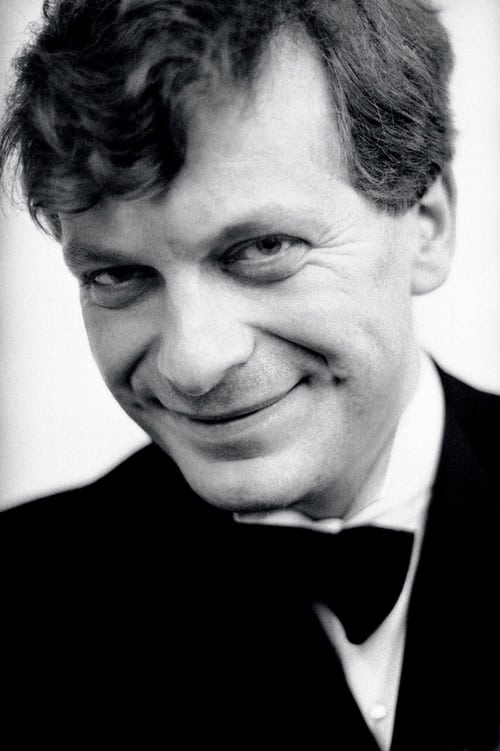
Tony Wilson
Anthony H. Wilson
atau dikenal sebagai
Riwayat Hidup
Anthony Howard "Tony" Wilson was an English record label owner, radio and television presenter, nightclub manager, impresario and journalist for Granada Television and the BBC.
As the head of Factory Records and one of the owners of the infamous Hacienda nightclub, Wilson was the man behind some of Manchester's most successful bands and was known as Mr Manchester.
His day job as a broadcaster saw him present programmes such as regional news show Granada Reports, music showcase So It Goes, World in Action, After Dark, Remote Control, Granada Upfront and the Politics Show to name but a few.
His role in the music industry formed the basis of Michael Winterbottom's acclaimed film 24 Hour Party People.
Info Pribadi
Peran Yang Di Mainkan Tony Wilson
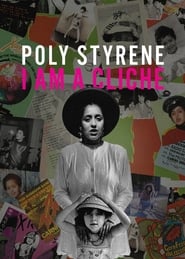 The death of punk icon and...
The death of punk icon and...Poly Styrene: I Am a Cliché 2021
The death of punk icon and X-Ray Spex front-woman Poly Styrene sends her daughter on a journey through her mother's archives in this intimate documentary.
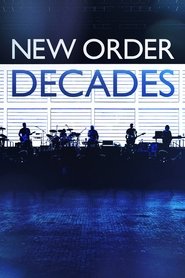 Part concert part documentary this film...
Part concert part documentary this film...New Order: Decades 2018
Part concert, part documentary, this film follows the band’s preparations in the re-staging of their acclaimed collaboration So It Goes.. with the artist Liam Gillick and the 12-piece synthesiser orchestra that spectacularly captured the headlines during Manchester International Festival 2017.
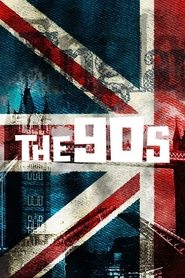 Documentary that outlines the 1990s and...
Documentary that outlines the 1990s and...The 90s: Ten Years That Changed the World 2015
Documentary that outlines the 1990s and the decade the changed the world.
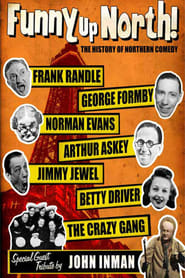 Documentary featuring a cavalcade of Northern...
Documentary featuring a cavalcade of Northern...Funny Up North 2011
Documentary featuring a cavalcade of Northern comedy stars including the great Frank Randle, George Formby, Arthur Askey, Norman Evans and many more. The North of England has always enjoyed its own very particular brand of comedy, best seen today in Coronation Street. 80 years ago however Mancunian Studios produced feature films for the northern masses. Funny Up North tells the story of the Mancunian Studios, its eccentric owner John E Blakeley and its cavalcade of stars including such household names as Arthur Askey, Jimmy Jewell, George Formby and the legendary Frank Randle. Hosted by Professor Chris Lee, the authority on northern cinema, Funny Up North takes you on a journey from its humble beginnings to its sad demise in the 1960s.
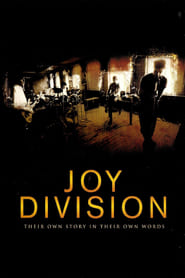 A chronological account of the influential...
A chronological account of the influential...Joy Division 2009
A chronological account of the influential late 1970s English rock band.
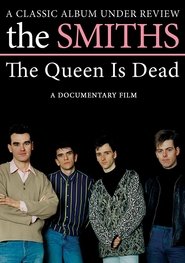 Showing for the first time how...
Showing for the first time how...The Smiths: The Queen Is Dead - A Classic Album Under Review 2008
Showing for the first time how it all came together and what made it so great, the film is all at once hugely enlightening, downright entertaining, and remains the only visual document of this momentous happening ever released. - Written by Clint Weiler
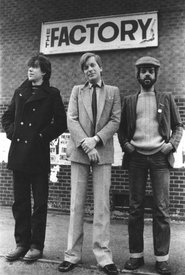 Documentary celebrating the triumph tragedy and...
Documentary celebrating the triumph tragedy and...Factory: Manchester from Joy Division to Happy Mondays 2007
Documentary celebrating the triumph, tragedy and human comedy that was Manchester record company, Factory. Started by the late Tony Wilson, Alan Erasmus, Peter Saville and Martin Hannett in the late 1970s, it became known as the home of Joy Divsion, New Order and Happy Mondays and for creating the Hacienda club. The label pioneered Britain's independent pop culture, creating a new Manchester and blowing a shed-load of money. Includes interviews with all the main players in the Factory story.
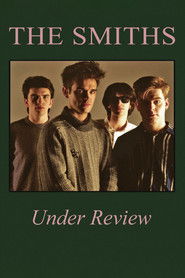 This indepth retrospective surveys the history...
This indepth retrospective surveys the history...The Smiths: Under Review 2006
This in-depth retrospective surveys the history and music of the Smiths via interviews with the band, expert commentary and insights from insiders, including producer Stephen Street. Performance footage and TV clips round out the program.
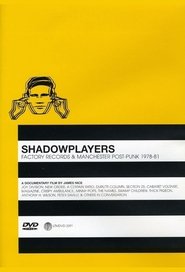 Shadowplayers is a two hour documentary...
Shadowplayers is a two hour documentary...Shadowplayers: Factory Records and Manchester Post-Punk 1978-81 2006
Shadowplayers is a two hour documentary film by James Nice tracing the early history of iconic Manchester Label Factory Records between 1978 and 1981. The facts and the fictions are explored through candid interviews with 22 key participants, including Anthony H. Wilson (Founder) and Peter Saville (Designer), as well as musicians including Peter Hook (Joy Division/New Order), Vini Reilly (Durutti Common), Simon Topping and Martin Moscrop (A Certain Ratio), Chris Watson (Cabaret Voltaire) and Howard Devoto (Buzzcocks/Magazine). The film is divided into 19 chapters, covering subjects such as The Factory Club, sleeve art and graphic design, producer Martin Hannett, the riot at the Joy Division concert at Bury in April 1980, The Factory Beneleux connection, the tragic suicide of Joy Division singer Ian Curtis, the beginnings of New Order, and the decline of the post-punk culture in 1981.
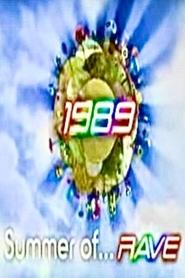 In the final days of the...
In the final days of the...The Summer of Rave, 1989 2006
In the final days of the yuppie decade, the summer of ’89 saw a new type of youth rebellion rip through the cultural landscape, with thousands of young people dancing at illegal Acid House parties in fields and aircraft hangars around the M25. Set against the backdrop of ten years of Thatcherism, it was a benign form of revolution, dubbed the Second Summer of Love – all the ravers wanted was the freedom to party… The rave scene, along with the drug Ecstasy, broke down social barriers and even football hooligans were ‘loved up’, solving a problem the government had never managed to crack. But lurid tabloid headlines and cat-and-mouse games with the police eventually turned the dream sour, as the gangster element moved in at the end of the summer.
 Steve Coogan an arrogant actor with...
Steve Coogan an arrogant actor with...A Cock and Bull Story 2005
Steve Coogan, an arrogant actor with low self-esteem and a complicated love life, is playing the eponymous role in an adaptation of "The Life and Opinions of Tristram Shandy, Gentleman" being filmed at a stately home. He constantly spars with actor Rob Brydon, who is playing Uncle Toby and believes his role to be of equal importance to Coogan's.
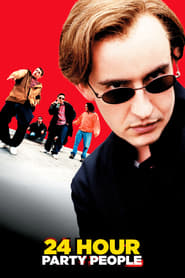 Manchester 1976 Tony Wilson is an ambitious...
Manchester 1976 Tony Wilson is an ambitious...24 Hour Party People 2002
Manchester, 1976. Tony Wilson is an ambitious but frustrated local TV news reporter looking for a way to make his mark. After witnessing a life-changing concert by a band known as the Sex Pistols, he persuades his station to televise one of their performances, and soon Manchester's punk groups are clamoring for him to manage them. Riding the wave of a musical revolution, Wilson and his friends create the legendary Factory Records label and The Hacienda club.
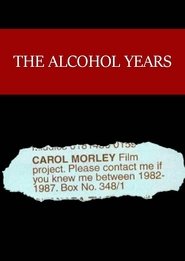 Carol Morley returns to Manchester where...
Carol Morley returns to Manchester where...The Alcohol Years 2000
Carol Morley returns to Manchester, where in the early 1980s, five years of her life were lost in an alcoholic blur. The Alcohol Years is a poetic retrieval of that time, in which rediscovered friends and acquaintances recount tales of her drunken and promiscuous behavior. In Morley’s search for her lost self, conflicting memories and viewpoints weave in and out, revealing a portrait of the city, its pop culture, and the people who lived it.
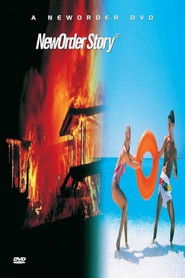 Rising from the ashes of the...
Rising from the ashes of the...New Order Story 1993
Rising from the ashes of the legendary British post-punk unit Joy Division, the enigmatic New Order triumphed over tragedy to emerge as one of the most influential and acclaimed bands of the 1980's, embracing the electronic textures and disco rhythms of the underground club culture many years in advance of its contempraries. "New Order Story" is the definitive documentary on the band and traces their history all the way back to its origin with Joy Division. This extended version includes additional interviews and live footage, over 2 hours of great New Order footage. A longform video chronicling the band's history and music with interviews by Bono, Neil Tennant, Quincy Jones and others.
 An examination into Factory Records The...
An examination into Factory Records The...Factory: Play at Home 1984
An examination into Factory Records. The members of New Order interview founders Tony Wilson and Martin Hannett, who speak on the philosophical and cultural purpose of their label, and their associates, who mostly appear frustrated or confused. Rob Gretton, Factory founder and manager of New Order, interviews himself. Also includes three live performances of New Order at the Haçienda.
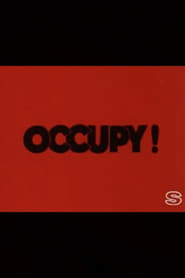 Bill Nighy Pete Postlewaite and briefly...
Bill Nighy Pete Postlewaite and briefly...Occupy! 1976
Bill Nighy, Pete Postlewaite and (briefly) Julie Walters, then all of the Everyman Theatre Company, feature in this potent reportage/dramatisation hybrid about the occupation of the Fisher-Bendix Factory in Kirkby. Dohany uses a variety of imaginative techniques to explore the longstanding dispute, and a pronounced sense of urgency pervades this act of solidarity.
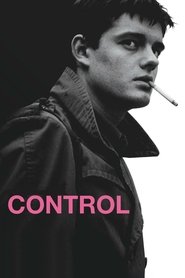 The story of Joy Divisions lead...
The story of Joy Divisions lead...